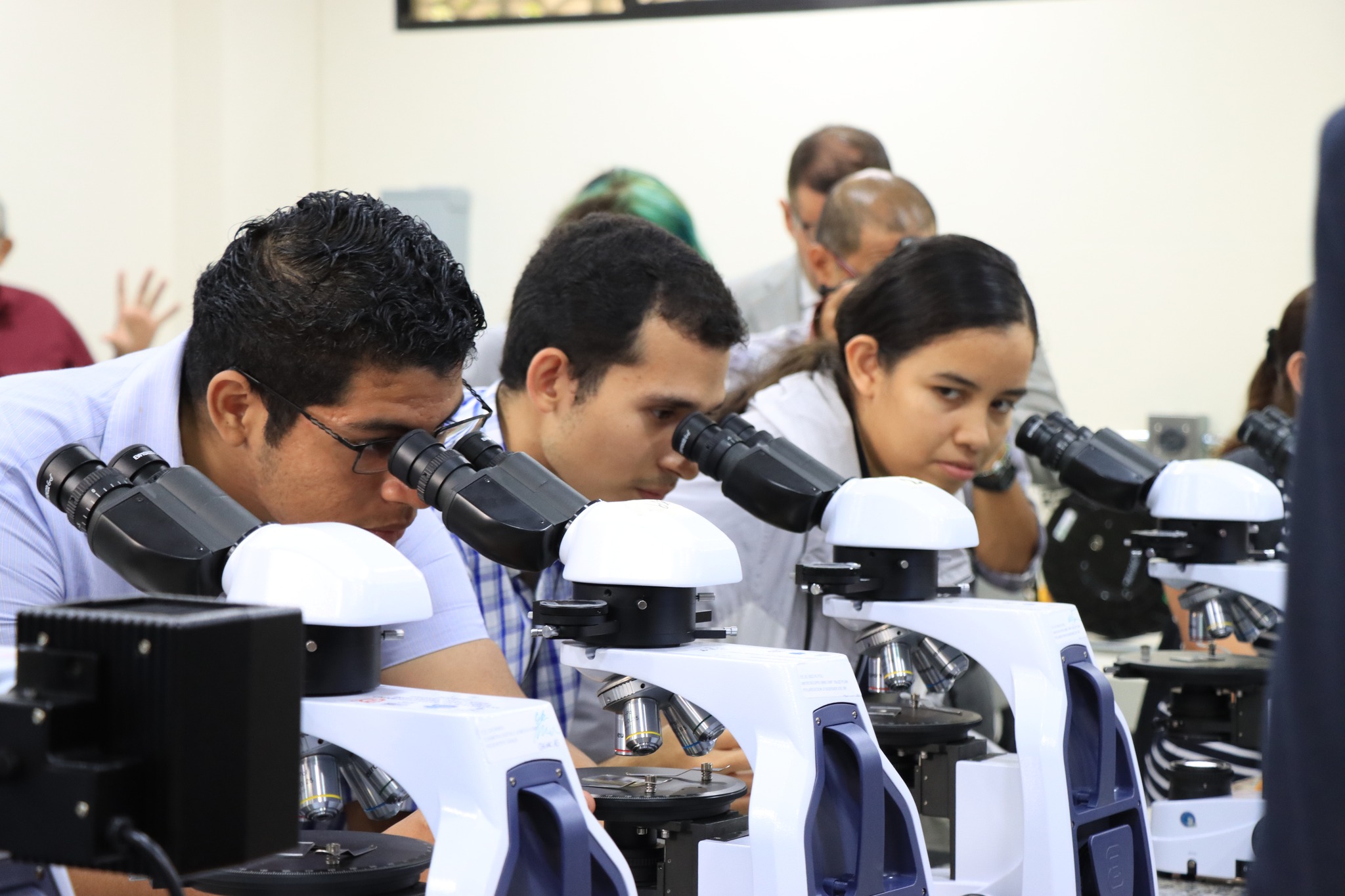The Italian Ambassador to El Salvador, Paolo Emanuele Rozo Sordini, together with the Director of the Italian Agency for Development Cooperation (AICS), Paolo Gallizioli, and the Rector of the University of El Salvador (UES), Juan Rosa Quintanilla, inaugurated a state-of-the-art geosciences laboratory at the Faculty of Agronomic Sciences of UES in San Salvador. This laboratory is the result of the three-year CASTES project, funded by AICS with 1.48 million euros and carried out in collaboration with the University of Palermo (UNIPA) and the “G. d’Annunzio” University of Chieti – Pescara (UNICH).
The laboratory is equipped with cutting-edge instruments and technology for education and research in the geological field, particularly for the study of soils, groundwater, volcanoes, and seismic activity. It is now available to students of the Faculty of Geological Engineering, which was established as part of the CASTES project. The project aims to strengthen disaster mitigation efforts related to geological phenomena in vulnerable areas like El Salvador. It includes training, exchanges, and internships for both faculty and students, involving lab and field research activities.
Ambassador Rozo Sordini expressed his satisfaction at seeing the benefits of cooperation between Italian and Salvadoran universities. He emphasized Italy’s ongoing support for initiatives that foster knowledge and technology exchange between the two countries. The Rector of UES highlighted the importance of Italian Cooperation’s support in opening the laboratory, which will promote academic and scientific growth for the university community and the Salvadoran population. AICS San Salvador Director, Paolo Gallizioli, underscored the sustainability of the initiative, ensured by continuous faculty training, know-how transfer, and the project’s focus on imparting specialized skills to benefit the country.
The event also included participation from Professor Christian Conoscenti of UNIPA, General Coordinator of the CASTES Project, and Professor Mario Rainone of UNICH, both of whom continue the Italian academic commitment to international cooperation.
A delegation from the AICS Environment and Land Use Office, currently on a technical monitoring mission in El Salvador to oversee four Italian-funded initiatives, including CASTES, was also present.
Many faculty members and students attended the event, which concluded with a demonstration of the laboratory’s equipment. These included a polarized light microscope for mineralogical analysis of rock sections, a geophone for detecting seismic waves, and an instrument for recording volcanic gas flows. The students expressed gratitude for the opportunity to access a high-quality course relevant to the country’s needs, believing it will enable them to contribute to disaster prevention and save lives.
